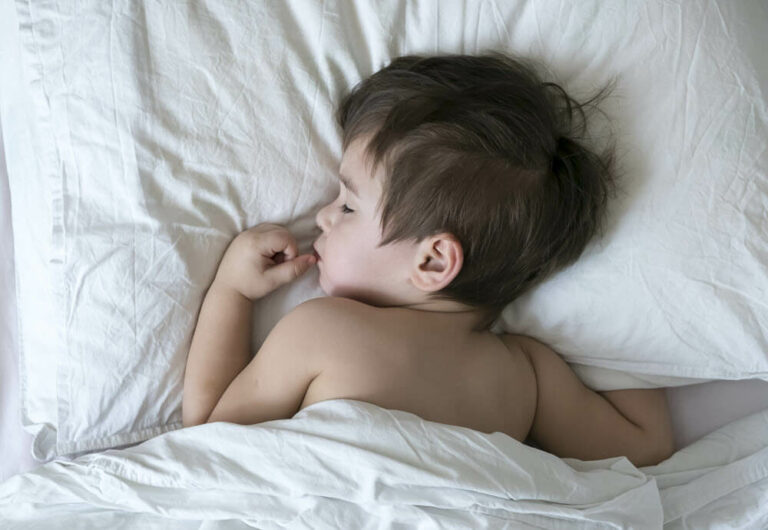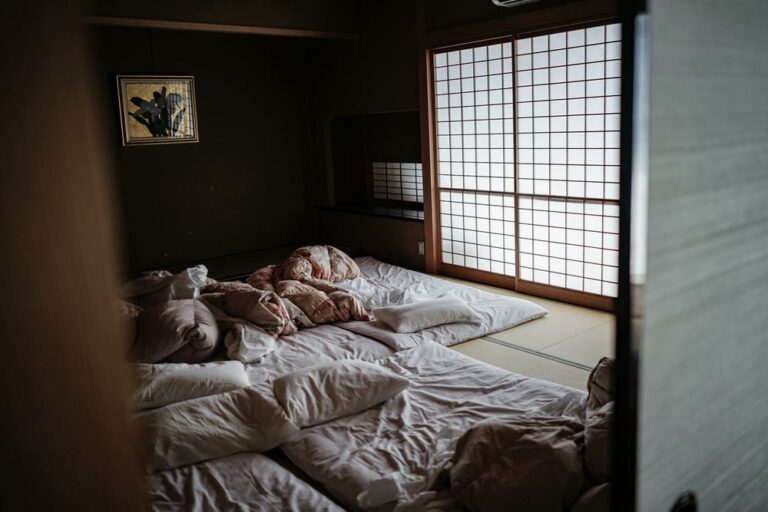Most of us will have experienced a weird sensation of falling just before we drift into sleep.
That somewhat terrifying, twitching feeling of falling when you’ve closed your eyes and your brain begins its transition from wakefulness into the land of dreams and rest is more common than you might imagine.
This sensation goes by many different names: hypnic jerk or hypnagogic jerk, myoclonus or myoclonic jerk, sleep twitches, sleep starts, body jerks… In one way or another, all of these describe the same thing, but for simplicity’s sake, I’ll go with the hypnic jerk term in this article.
What Exactly Is a Hypnic Jerk?
Hypnic jerks are involuntary muscle twitches that happen precisely in that liminal space between waking life and blissful sleep.
They fall into the category of myoclonus, which is a general term for involuntary muscle twitches, including hiccups (which specifically affect the diaphragm). They have an irregular rhythm, and they cannot be controlled by the individual experiencing them.
What Are the Symptoms of Hypnic Jerks?
It’s important to note that the medical community doesn’t consider hypnic jerks a disorder. They’re a natural body phenomenon, and they are, in fact, pretty common.
So, in that sense, the word “symptoms” might be a bit misleading since they’re not really signs of a disease or a medical issue.
If you experience a hypnic jerk, you may feel:
- Like you’re falling, slipping, or tripping from a surface;
- Dreaming and falling or tripping in your dream, which is followed by waking up;
- A startle, followed by waking up;
- Fast heartbeat/increased heart rate;
- Sweating.
Are Hypnic Jerks a Sign of a More Serious Disease?
Hypnic jerks are generally not considered to be dangerous or a sign of something more serious. About 70% of people will experience them at least once in their lifetime, and 10% of people regularly have them.
They might be connected to different kinds of movement disorders and different types of myoclonus. So if you experience hypnic jerks, you don’t necessarily need to see a doctor. But if you experience involuntary muscle twitches, jerks, or movements during the day, and you have muscle contractions that occur often and spread out throughout the body, you should definitely consider seeing a medical professional.
If you feel concerned about a sudden onset of hypnic jerks happening every night, then also consider seeing a doctor. You might need to make some changes in your lifestyle habits to make them go away.
What Causes Hypnic Jerks?
The reason behind this experience is not that clear. The psychologist Tom Stafford explains to BBC that “hypnic jerks seem to be a sign that the motor system can still exert some control over the body as sleep paralysis begins to take over.”
Sleep paralysis is a temporary inability of the body to move during sleep so it can protect the sleeper from enacting their dreams.
The quote above means that our brains don’t really have an ON and OFF switch in the brain that simply regulates sleep and wake cycles. Rather, it’s more of a balancing act of “two opposing systems” that try “to wrest control from the other” each day and night.
But regardless of these neurological causes behind hypnic jerks, lifestyle factors, mental health conditions, and diet habits can also influence how often and whether you experience these sensations at all.
This means that anxiety sufferers, for example, may be more prone to experiencing hypnagogic jerks, as are people who often drink caffeine or take stimulants. Other factors such as sleep deprivation, vigorous exercise in the nighttime, stress, and poor sleep hygiene can also be the culprits.
In some cases, hypnic jerks can also be a side effect of certain medications.
How Can You Prevent Hypnic Jerks?
There are some ways to improve your everyday life, which can prevent you from experiencing hypnic jerks.
Improve Your Sleep Hygiene
Sleep hygiene refers to a set of sleep habits. If you have good sleep hygiene, you’re more likely to have better sleep quality and reduce the times you wake up during sleep.
What can you do to improve your sleep hygiene?
- Have regular sleep habits – this means going to bed at the same time and waking up at the same time. And the same goes for weekends too. Create a sleep schedule that’ll suit your own needs and your sleep type, one that your body will find easy and natural to follow.
- Sleeping with the lights off – draw the curtains or close the blinds, make sure that your environment is dark
- Keep it cool – science says we sleep better in colder environments. This means your bedroom temperature should be somewhere between 18 and 22 degrees Celsius.
- Stop looking at screens an hour before you go to bed – the blue light from our digital devices is infamous for meddling with our sleep patterns, keeping us awake when we should be going to bed.
- Don’t take too many naps during the day – sure, cat naps are great for getting that energy boost midday but don’t overdo them. And make sure they don’t last more than 30 minutes, an hour tops!
- Keep it noise-free – You can use earplugs to muffle the sounds of a noisy environment while you’re sleeping.
Avoid Coffee and Caffeinated Drinks
This is also a part of good sleep hygiene patterns. Coffee is indispensable in the morning for most of us, but if you take it late in the afternoon or in the evening, it can affect your sleep and can contribute to the onset of hypnic jerks.
Stimulants like caffeine stay long in your system and may cause insomnia and other kinds of sleep disorders.
Avoid Nicotine and Alcohol
Yeah, cigarettes and alcohol aren’t exempt from this either. Nicotine is also a kind of stimulant that can also interfere with your sleep patterns.
And while you might think that a nightcap can only help you doze off more easily, that’s not really the case. Alcohol, like nicotine, meddles with your sleep patterns, and while it does make you sleepier, it also makes you wake up more easily and cuts your sleep cycle in shreds.
All of this can cause sleep deprivation and poor sleep quality in general, which can lead to hypnic jerks.
Reduce the Stress in Your Life
Yeah, easier said than done, right? Stress is an indelible part of our daily lives, and while small amounts of stress are actually good for us, if it turns into chronic stress, then we’re talking trouble.
Chronic stress can lead to poor sleep, nervousness, muscle twitches, hypnic jerks, insomnia, and a number of other health issues.
If you feel overwhelmed by tasks, split them into small goals. Take frequent breaks, be easy on yourself, delegate any responsibilities if possible, or for another time. Take the weekend off to unwind, go on a trip, do something fun with your partner or friends.
Just do whatever relaxes you, and make sure to develop (and stick to) good sleep hygiene.
Try Breathing Exercises
Breathing exercises can help with stress, anxiety, and they can also help you try to reduce hypnic jerks.
You can do breathing exercises both before you go to bed and when you wake up in the morning.
For better sleep, you can try the 4-7-8 breathing exercise. Sit comfortably, make sure your back is straight, you can even have your eyes closed if you want. Breath in through the nose while you count to four. Then hold your breath while you count to seven. And exhale while you count to eight. That’s it – it’s very simple!
Breathing exercises help you calm down, regulate your heart rate and breathing pattern, and help your brain to become focused, clearer, and help you feel more relaxed.
Avoid Vigorous Exercise in the Night
Exercise is necessary for good health, we all know that. But too much of it, especially at night, can meddle with our sleep.
If you’re an exercise buff, make sure you work out earlier in the day to prevent any sleep disturbances, including hypnic jerks.
So if you really want to move your body before sleep, it’s better to do some stretching exercises or bedtime yoga, or any kind of exercise that has a low or moderate intensity.
If you do a more demanding exercise in the evening, make sure you stop working out for about an hour and a half before you plan on going to bed to give your body some time to calm down, and your heart rate to get back to normal.
Conclusion
Hypnic jerks aren’t anything you should be concerned about. As you saw in this article, they can happen to literally anyone, and a lot of healthy people experience them regularly or at least once in their lifetime.
However, if they bother you too much, the good news is that there are ways to try and prevent them. Healthy sleep habits, a well-balanced diet, limiting alcohol, nicotine, and caffeine are all part of the equation to maintaining good quality sleep without waking up unexpectedly throughout the night.






